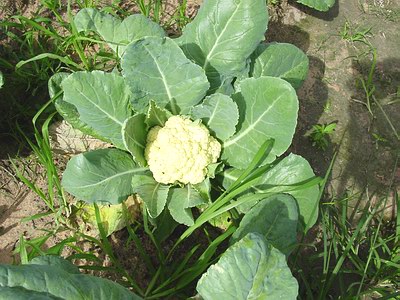
Add nitrogen-rich amendments such as blood meal, cottonseed meal, or composted manure to the soil, or improve your native soil with aged compost-enriched Miracle-Gro® Performance Organics® All Purpose In-Ground Soil. Apply fertilizer and lime according to test recommendations. You can buy a kit, or get a soil test through your regional Cooperative Extension office. The soil pH should be between 6.5 and 6.8 for optimum growth and to discourage clubroot disease.

It also needs fertile, well-drained, moist soil with plenty of rich organic matter.
#Best way to grow cauliflower from seed full
Like most vegetables, cauliflower needs at least 6 hours of full sun each day more is better. Plus, starting with young plants will put you that much closer to harvest time. Bonnie has over a century of experience providing quality plants for home gardeners, so you can rely on us. If you're looking to get the most you can out of your cauliflower plants in terms of growth and harvest, start with Bonnie Plants® cauliflower plants instead of seeds.

Now that you know the challenges, allow us to equip you for success. This also happens if plants sit in packs too long, or are stunted by drought or poor soil. This can happen when it's too hot or too cold. Any stress tips the balance toward premature heading, or "buttoning," when the plant makes tiny button-sized heads. In young cauliflower plants there is a fine balance between leaf and head growth. Cauliflower likes temperatures in the 60s. It also needs rich soil and a steady supply of water and nutrients. However, you can try growing it at home no matter where you live, but timing is important to catch the temperature just right. The trick to growing cauliflower is consistently cool temperatures, which is why almost three-fourths of commercial cauliflower is grown in the coastal valleys of California. However, it is more temperamental than its relatives.

Cauliflower is a cool-season crop in the cole family (Brassica oleracea), which includes broccoli, Brussels sprouts, cauliflower, collards, kale, and kohlrabi.


 0 kommentar(er)
0 kommentar(er)
